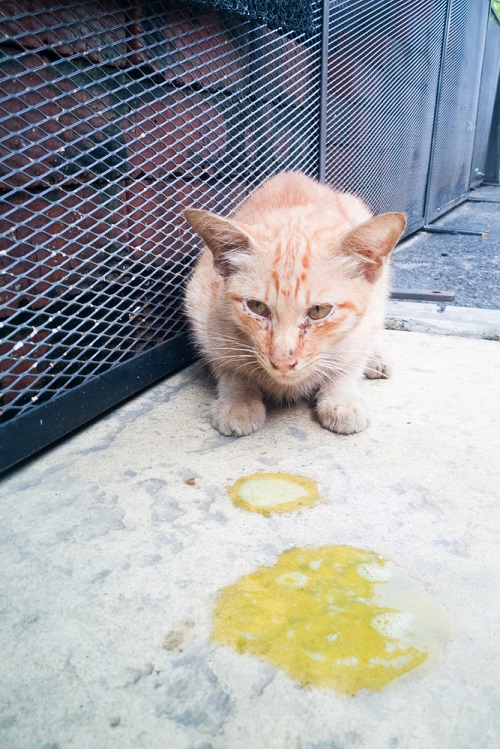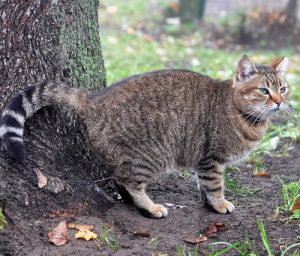Curious about How Long Can A Cat Go Without Eating? Our new article spills the beans on this and more details.
Cats are notorious for their love of food, with many of them being more than happy to meow their way to a tasty treat. However, it’s essential to understand how long your kitty can survive without food. Whether it’s due to illness, stress, or a finicky appetite, there may be times when your cat refuses to eat. In this article, we’ll explore How Long Can A Cat Go Without Eating, signs of malnourishment, and what you can do to ensure your kitty stays healthy.
Can Cats See Candle Flames? Find out here
The Importance Of Feeding Your Cat
Feeding your cat is one of the most important responsibilities you have as a pet owner. Just like us, cats need a balanced and nutritious diet to stay healthy and happy. A well-fed cat is more likely to have a shiny coat, healthy skin, and a strong immune system, helping her ward off illnesses and live a longer life. In addition to providing the right nutrients, feeding time gives you an opportunity to bond with your feline. So, whether you’re making a bowl of kibble or serving a homemade meal, feeding time is a crucial part of your cat’s daily routine.
How Long Can A Cat Go Without Eating?

How Long Can a Cat Go Without Eating? Generally, a healthy adult cat can go without eating for approximately two to four days (when munching a few bits and pieces of food here and there). However, this timeline can vary depending on a range of factors, including the cat’s age, overall health, and level of activity.
For example, kittens, senior cats, and felines with pre-existing medical conditions may not be able to go as long without food as a healthy adult cat. Felines who are overweight or obese may be able to survive for longer periods without eating, as their body can utilize stored fat for energy.
Nevertheless, regardless of their age or weight, all kitties need access to fresh water at all times, especially if they are not eating.
If you notice that your cat has not eaten for more than two days, it’s crucial to seek veterinary advice, as prolonged fasting can lead to serious health problems.
Factors That Affect A Cat’s Ability To Go Without Eating
There are various factors that affect How long Can a Cat Go Without Eating. Some of them are:
- Age: Kittens and senior cats are more vulnerable to the adverse effects of fasting than healthy adult cats. While kittens require more frequent feedings because of their smaller stomachs and faster metabolism. Senior cats may have health issues that make it more difficult for them to go without food.
- Pre-existing health conditions: Cats with pre-existing health conditions, such as diabetes, may not be able to survive without food compared to healthy felines. These cats require special diets or medications to manage their conditions.
- Obesity: Cats with excess body fat can survive longer without food than kitties with a healthy weight. However, obesity itself is a health risk, and prolonged fasting can lead to complications.
- Level of activity: Highly active cats may burn more calories and require more energy from food to maintain their health as compared to less active ones.
- Stress: Cats may stop eating due to stress or changes in their environment. This can include changes in routine, the introduction of new pets, or changes in the cat’s living situation. Prolonged fasting due to stress can lead to health issues, so address the root cause of the stress and encourage them to eat again.
Signs Of Malnourishment In Cats

- Weight loss
- Failure to gain weight
- Dull, dry, or thinning coat
- Dry or flaky skin
- Lethargy
- Decreased appetite
- Refusal to eat
- Vomiting
- Diarrhea
- Dental problems
- Difficulty eating
Some of these symptoms can also be caused by other health issues. So if you notice any of these signs in your fur baby, seeking a vet’s advice is highly recommended.
Risks Of Prolonged Fasting In Cats
- Fatty liver disease: When a cat stops eating, their body begins to break down stored fat for energy. However, if the cat’s liver is unable to process this fat properly, it can build up in the liver and lead to liver failure.
- Dehydration: Felines who are not eating may also not be drinking enough water, which can lead to dehydration. This can be particularly dangerous for cats with pre-existing health conditions such as kidney disease.
- Muscle loss: Without adequate nutrition, a cat’s body may begin to break down muscle tissue for energy. This can lead to muscle loss and weakness.
- Weakened immune system: Adequate nutrition is essential for a cat’s immune system to function properly. Prolonged fasting can weaken the immune system and leave cats vulnerable to infections and illnesses.
- Behavioral changes: Cats who are hungry and not eating may become agitated, restless, or lethargic. They may also become less social or hide away from their owners.
How Long Can A Cat Go Without Eating? Quick Takeaways!
- Feeding your furry friends a balanced and nutritious diet is essential for their health and overall well-being.
- A healthy adult feline can go without food for 2-4 days, but this time period can vary.
- Kittens, senior cats, and felines with pre-existing health conditions may not be able to go as long without food.
- Signs of malnourishment in cats include weight loss, dull coat, lethargy, and dental problems, among others.
- Extended periods of fasting can lead to serious health complications, including fatty liver disease, dehydration, muscle loss, a depleted immune system, and behavioral changes.
- If you notice that your cat has not eaten for more than two days, consult with an expert vet.



